Normal Reading Comprehension worksheets activities for Ages 6-8
5 filtered results
-
From - To
Discover engaging reading comprehension worksheets designed specifically for children aged 6-8! Our collection features age-appropriate activities that foster essential reading skills, making learning both fun and effective. Each worksheet encourages critical thinking and enhances vocabulary through diverse texts, comprehension questions, and interactive challenges. With colorful illustrations and relatable themes, young readers will enjoy honing their skills while building a love for reading. Perfect for classroom settings or at-home learning, these worksheets provide a comprehensive approach to ensuring your child understands and retains what they read. Explore our resources today to support your child's literacy development and boost their confidence in reading!
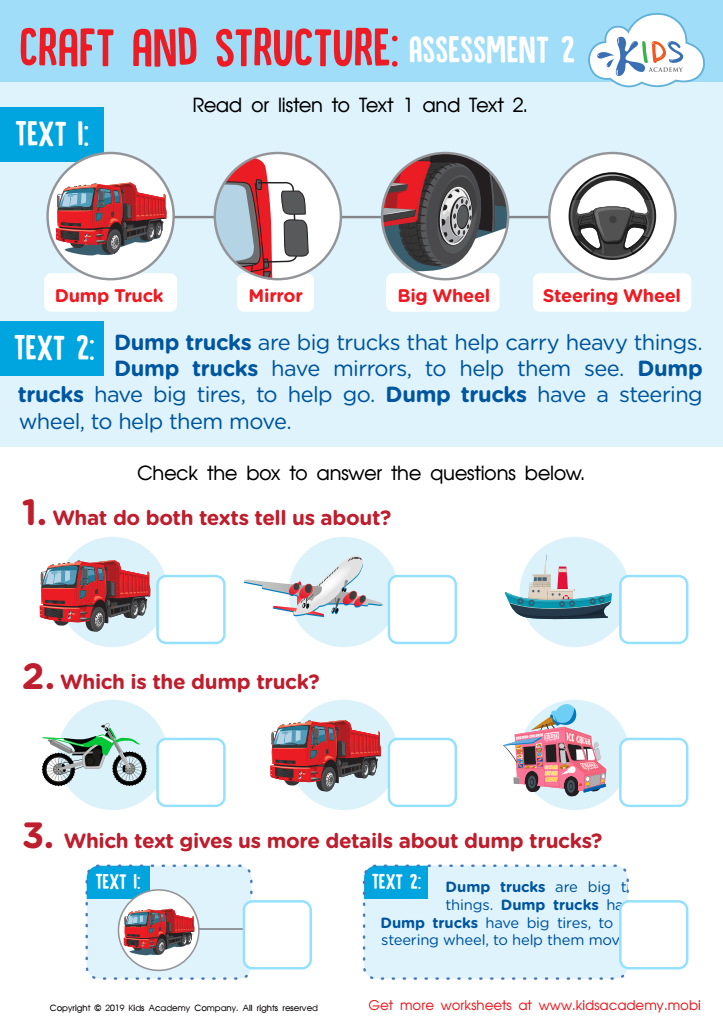

Craft and Structure: Assessment 2 Worksheet
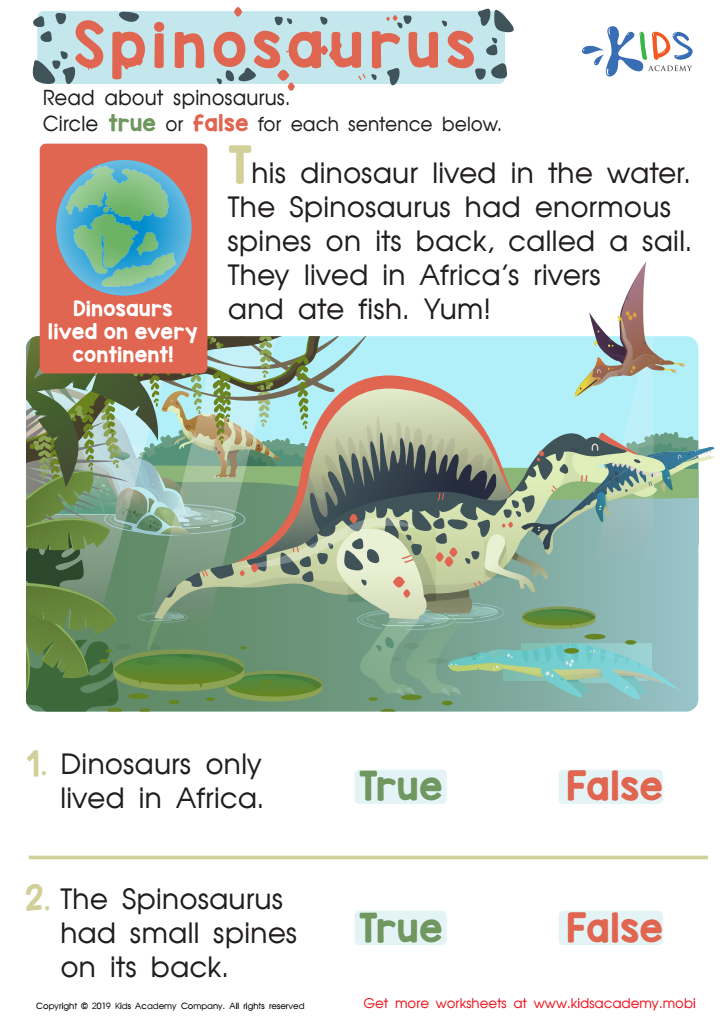

Spinosaurus Assessment Worksheet
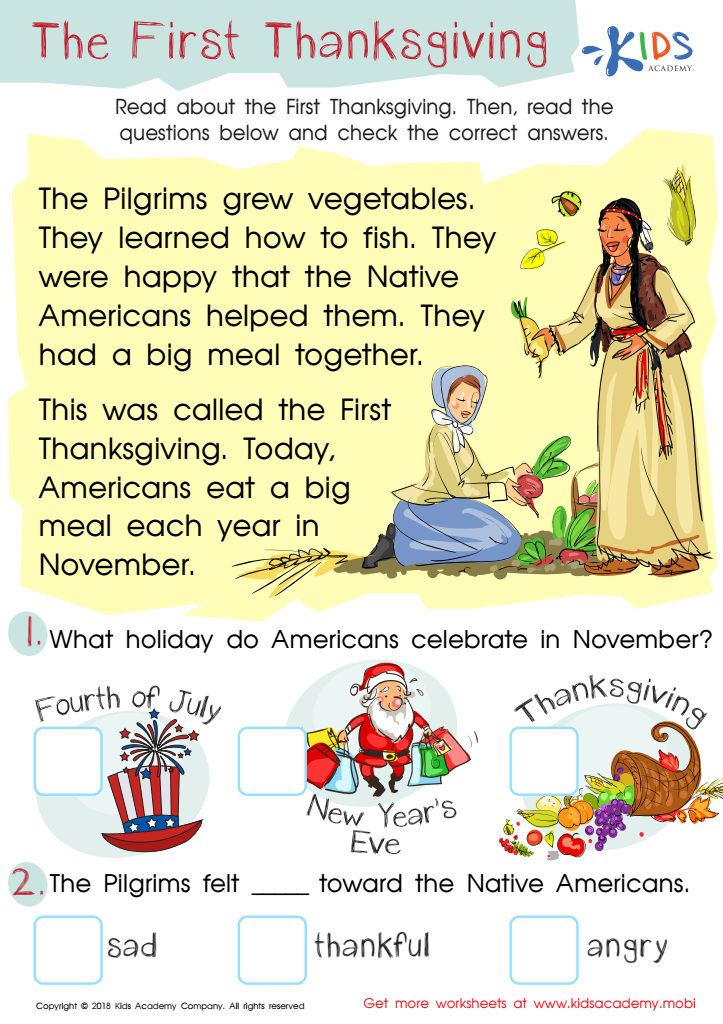

Assessment: First Thanksgiving Worksheet
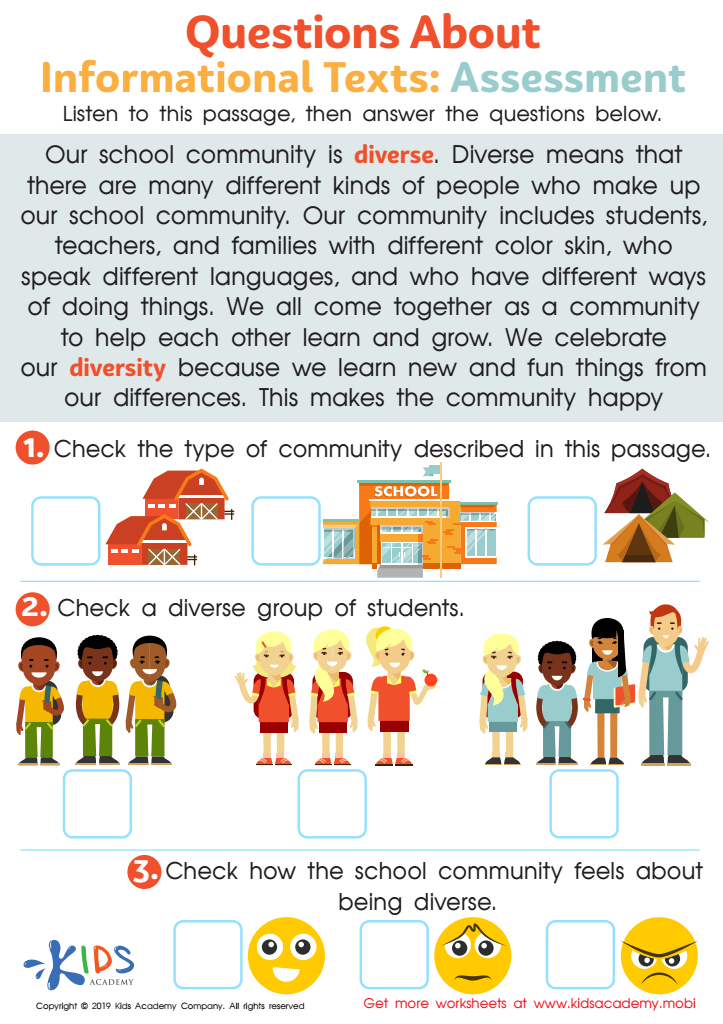

Questions About Informational Texts: Assessment 1 Worksheet
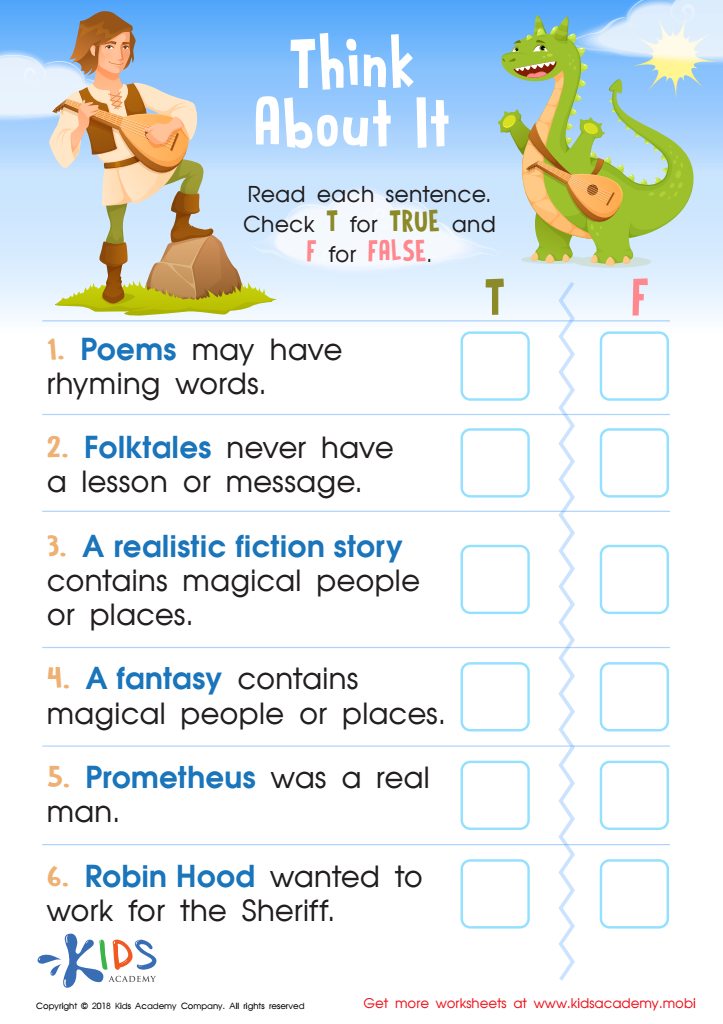

Think About It: Assessment Worksheet
Reading comprehension is a crucial skill for children aged 6-8, as it lays the foundation for academic success and lifelong learning. At this developmental stage, children are transitioning from learning to read to reading to learn. Engaging in normal reading comprehension activities helps them develop the ability to understand, analyze, and interpret texts, which is essential across all subjects.
Parents and teachers should care about these activities because they enhance vocabulary and language skills, boost critical thinking, and cultivate a love for reading. By participating in fun and age-appropriate comprehension exercises, children learn to identify key ideas, make connections, and draw inferences, enabling them to engage with stories on a deeper level.
Moreover, consistent practice not only fosters a sense of achievement but also builds confidence in their reading abilities. These activities can also have a positive impact on children’s social interactions, as discussing stories with peers or family members allows for improved communication and collaborative skills. Ultimately, prioritizing reading comprehension activities ensures children are better prepared for future academic challenges and instills the value of education, setting the stage for a successful and informed adulthood.
 Assign to My Students
Assign to My Students







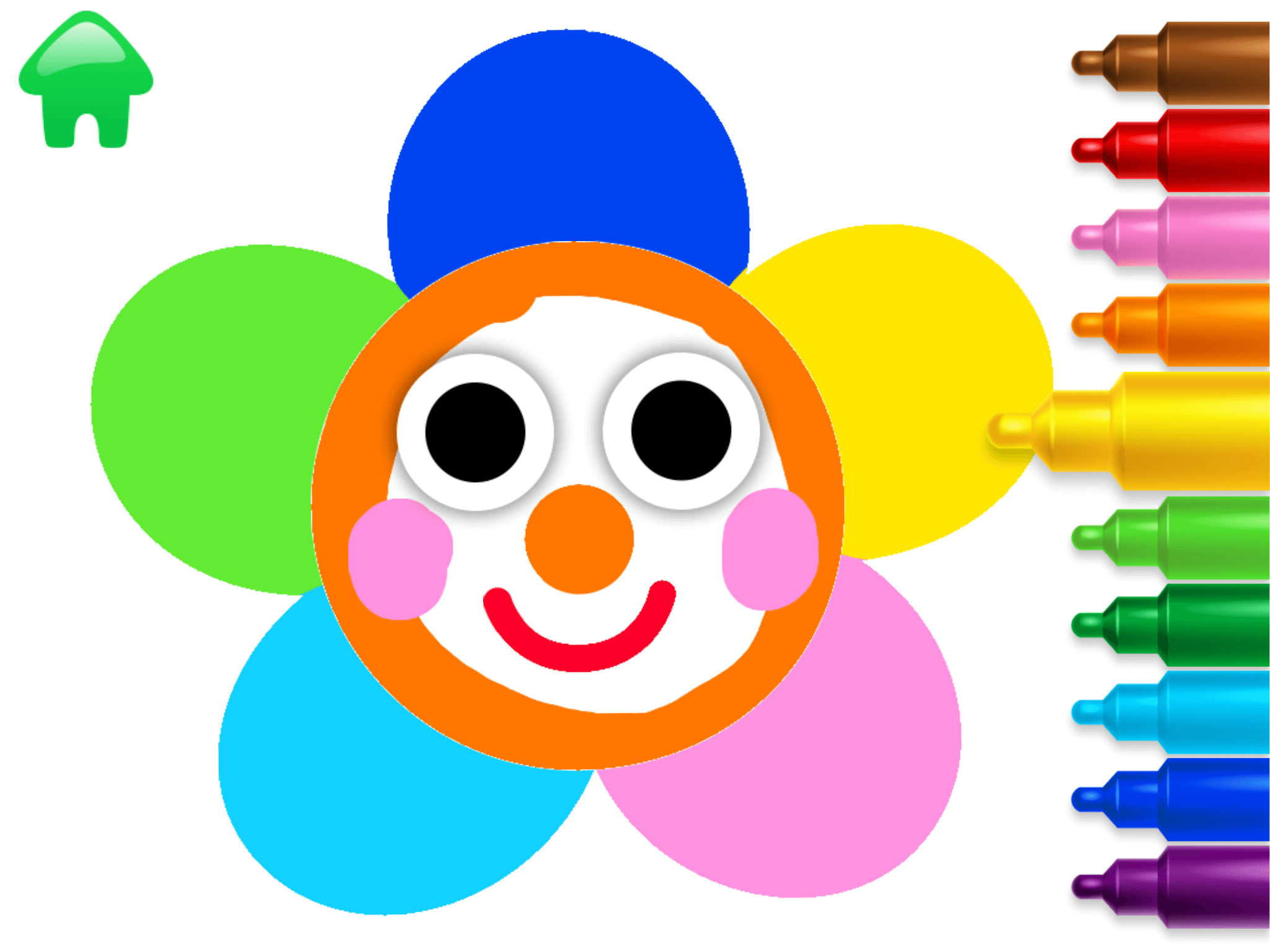
.jpg)












